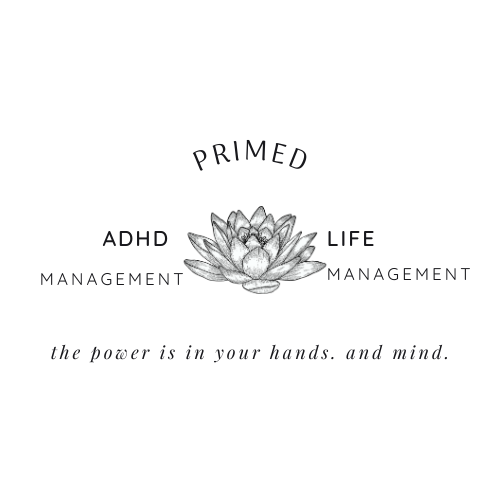(or, why I am not a liability)
I talk a lot about my upcoming programs, but what I’ve never mentioned is that I’m also looking for a job for consistent income. If I have consistent income I can be a better coach because I’ll have the income to invest in myself and my business, and I’ll be able to give back by investing in other peoples’ programs so I can keep learning and helping. I only apply to roles that appear to be a cultural fit with pay that matches my experience and cost of living. I want a position that’s engaging with the right amount of challenge, where I’ll be able to get feedback but also have autonomy. I like working with teams and collaborating, but also being able to do my part on my own. I want to be a rock star. I want to shine. I want to help. I recently posted this to LinkedIn:
I want a space where I either have cubicle walls OR a space I can go when I need to work alone if I’m in an open-concept office. A window seat for natural light would be nice, but not necessary. I need these things because I’m easily distracted, and I experience sensory issues. I prefer a physical barrier between myself and co-workers. I like to put calendars and other visual aids up on walls. It helps my productivity. I’m capable of hot-desking if my laptop is lightweight.
Something like this looks nice but can cause me anxiety:
One of the reasons for this post is that I’ve directed potential employers to this site as a writing example. It could be a risky move. I don’t want potential employers – or clients – to worry that I’m a liability. ADHD isn’t a red flag. It has benefits!
Here are some of the benefits of ADHD
Hyperfocus
One common characteristic of people with ADD/ADHD is the ability to hyperfocus. Many scientists, artists, writers and entrepreneurs have been very successful because of their ability to focus for hours. See examples below.
Bright and creative with different perspective
We tend to be intelligent and creative. We look at things differently than others do. We spend a lot of time in our heads. We’re persistent. I think entrepreneurship appeals to people with ADD/ADHD because we’re full of ideas and prefer to create our ideal work environment without burdening employers. I suspect that writing is often a career choice because of our creativity. We spend a lot of time in our heads. We create stories. We work out problems.
Albert Einstein is said to have had ADD, although this label that didn’t exist during his lifetime.
Compassion and empathy
We tend to be compassionate and empathetic. These are useful when collaborating with co-workers or stakeholders and when communicating with clients. I’m certainly empathetic.
Hard work to maximize potential
We work hard to compensate for our “weaknesses,” and we’ve found ways to do so. For example, while “attention to detail” is one such weakness, people whom I’ve worked with and for have observed that I have an eagle eye for editing. I notice when the font face is inconsistent and when there’s an extra space. As long as I take my editing work to a quiet place with no distraction, I edit well. To me, editing is like a fun puzzle. Find all of the errors! I’m extremely organized because I need to be. Everything gets written down. If it’s not on my calendar, it doesn’t exist. I have friends with ADD who share this experience.
Self-awareness
We’re self-aware. We’re aware that we’re different than others. Some of us understand that we’re neurodiverse, even if we don’t know that word (I only recently learned it).
In the last year, I stopped fearing being a burden. I’ve taken it upon myself to help fight the stigma. Creating awareness is why I changed the mission of this website. When my previous full-time job made my ADHD flare up after it had laid dormant for months, I discussed it with my manager. It was the first time I had ever raised the issue with a manager. In the past, I chose to “suck it up.” My manager was sympathetic and unsuccessfully advocated for me. Because I was under contract with an agency, the system wasn’t on my side. I accepted the job offer because I was qualified and needed income, but I quickly discovered that it was a poor fit.
Lessons learned while working for that company are helping me in my current job search. I have a better understanding of my own needs, which allows me to maximize my productivity and value. I’m an asset because I know what works for me and what doesn’t. Being honest about it benefits my (future) employer and me.
I also picked up some new experience and skills. For example, I learned how to plan and host a Twitter chat.
Famous people with ADD or ADHD
In addition to Albert Einstein, famous, successful people with ADHD include:
Richard Branson, journalist Lisa Ling, winning athletes Michael Phelps and Terry Bradshaw, several musicians and politicians, plus more entrepreneurs.
It seems that people choose careers for reasons related to ADD (or, their careers choose them).
On side-gigs, side-hustles and the like
I am fully confident that I can support a small (4-6) roster of 1:1 clients and/or a couple of client groups while managing a 40-hour/week job. SO many people have side hustles these days, and if anyone can do it, it’s someone with Attention Deficit Disorder. I have systems in place. I have multiple calendars. I can prioritize. For years I freelanced as a social media specialist while I had a full-time job. I collaborated with one or two clients at a time. I always preferred to keep my client roster small so that I could devote more attention to each. I think that that’s beneficial for relationship management, ADD or not.

Photo credit: “InvestmentZen” on Flickr.
So, if you’re here because I’ve applied for a job at your company, let’s chat! I determined that you and I were a good fit based on what I knew about the role and the company. I’m a good judge of such things. If you’re here without me having applied to your company, let me know if you’ve got anything. I’m looking for either a transit-friendly job in Toronto or remote work.



